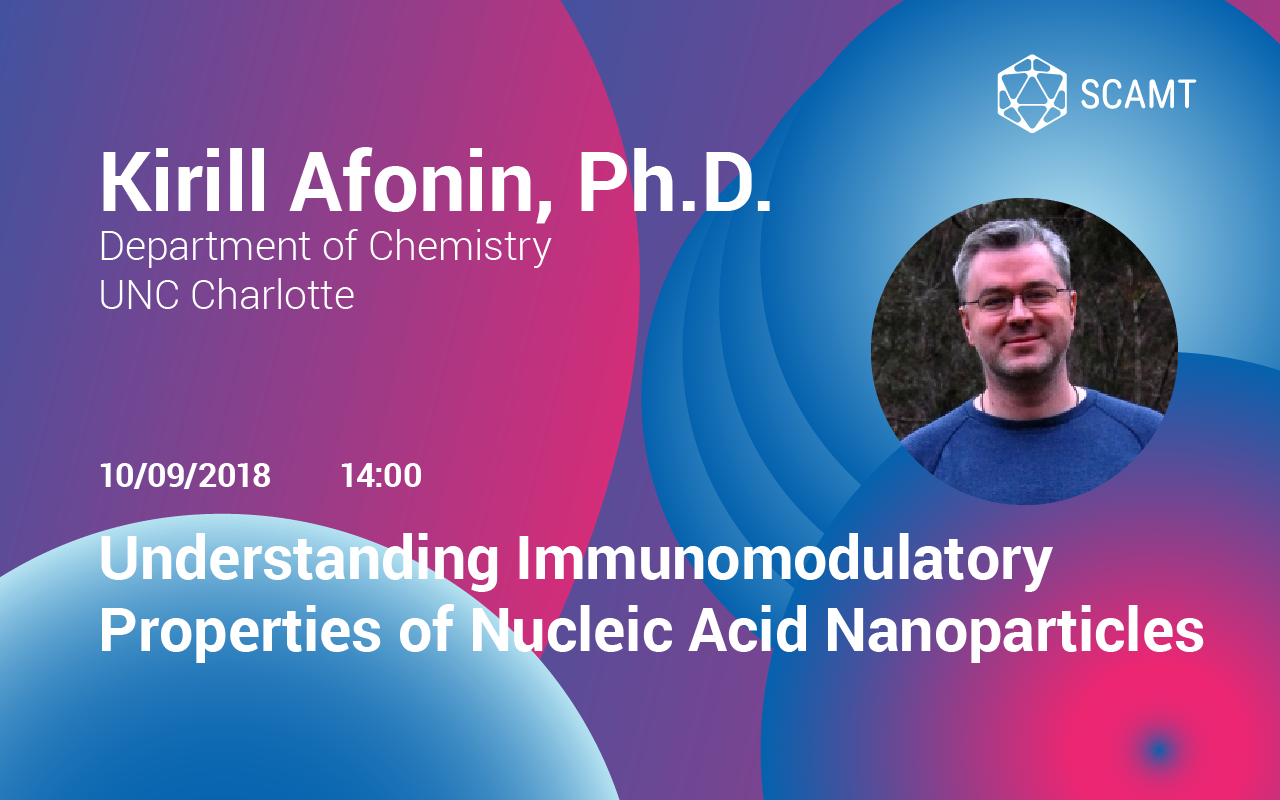Новый учебный год - новые крутые знания от коллег из США!
10 сентября в 14:00 с лекцией "Understanding Immunomodulatory Properties of Nucleic Acid Nanoparticles" в SCAMT выступит профессор Кирилл Афонин.
Кирилл Афонин руководит научной группой в UNC Charlotte (Университет Северной Королины) Шарлотт, США. Основными направлениями научной работы являются: нанодизайн, иммунология, доставка лекрств и многое другое. Кирилл двухкратный обладатель награды FARE award (Fellows Award for Research Excellence).
Лекция будет открытой и любой желающий может посетить ее. 2320 SCAMT lab.
Аннотация:
Therapeutic nucleic acids have evolved as a promising platform for the detection and treatment of a wide range of diseases. In the past years, however, there have been several announcements that U.S. biotech companies have discontinued clinical development of therapeutic nucleic acids formulated using lipid-based carriers citing severe “cytokine storm” inflammatory reactions and limited efficacy among reasons for the discontinuation of such formulations. To address these barriers, more sophisticated formulations that employ rationally designed RNA molecules have been designed. The ability of RNA to assemble into discrete and uniform shapes make them a viable option for a number of biomedical applications and to become one of the next milestones in personalized medicines along with small molecule and protein-based pharmaceuticals. It is becoming apparent that interactions between RNA nanoassemblies and the immune system must be defined to permit the successful translation of this technology to the clinic. Therefore, to address fundamental questions regarding the immune recognition of these novel materials, we have designed the following study in which features such as size, shape, composition, and physicochemical properties of RNA and DNA nanoparticles were related to their therapeutic activity in human cancer cells and activation of immune responses in human immune cells. We designed, assembled and characterized a series of RNA, DNA, and RNA/DNA hybrid nanoparticles and further surveyed the link between their size, composition, physical and chemical properties to the pro-inflammatory responses. The biomarkers of pro-inflammatory response were cytokines and type I interferons. This work is instrumental in bridging the rapidly narrowing gap between basic research on nucleic acid nanoparticles and advanced pharmaceuticals containing these novel materials.
